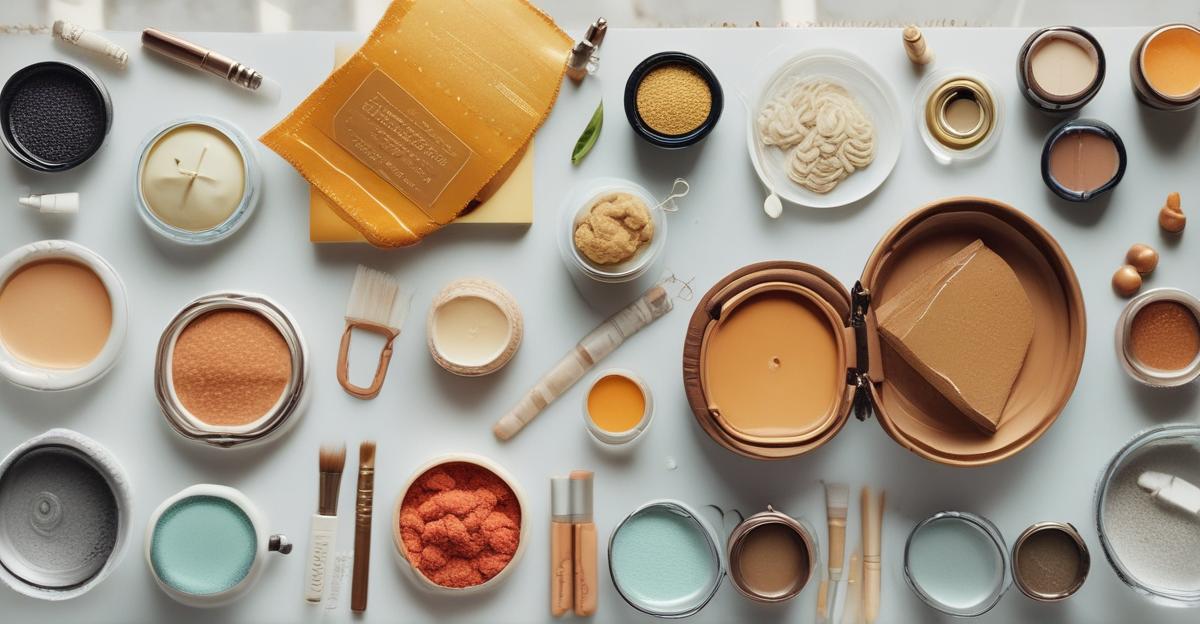Auto-published by Growwh – a smarter way to scale content and marketing. Want to know more? Chat with us.
Discover how Indian beauty startups are overcoming regulatory challenges, leveraging tech for compliance, and driving ethical growth in a booming market.
Auto-published by Growwh – a smarter way to scale content and marketing. Want to know more? Chat with us.
The Thriving Beauty Startup Scene in India
India’s personal care and beauty business is experiencing unprecedented growth, driven by rising disposable incomes, increasing consumer awareness, and the emergence of indigenous beauty firms. However, behind the glitz and glamour lies a complex regulatory framework that new cosmetic companies must navigate to ensure safety, transparency, and market acceptance. Understanding and adhering to these regulations is not merely a checkbox exercise; it lays the foundation for product credibility, company reputation, and consumer trust.
Ready to take your brand to the next level?
At Growwh, we help startups and emerging brands grow faster with powerful content, creator collaborations, and tech solutions.
Explore what we do →
Understanding India’s Regulatory Landscape
New entrants in the Indian cosmetics industry face a stringent regulatory environment that requires adherence to several laws, such as the Drugs and Cosmetics Act, 1940 and the Cosmetic Rules, 2020. The Cosmetic Rules outline comprehensive provisions regarding labelling, manufacturing, and safety practices.
Importantly, the Central Drugs Standard Control Organisation (CDSCO) governs cosmetic products, with the Bureau of Indian Standards (BIS) setting quality norms for nearly all beauty products. This multifaceted regulatory landscape poses a challenge—especially for new companies unaccustomed to such frameworks.
Regulatory Challenges: The Startup Struggle
Compliance is often intricate and intimidating, presenting significant hurdles for startups. Obtaining CDSCO registration involves extensive documentation, ingredient testing, and a lengthy approval process. The costs associated with safety tests, ranging from microbial to dermal testing, can burden young companies and slow their time to market.
One of the most overlooked yet critical challenges is compliance labelling. Minor mistakes—such as failing to include usage instructions or using illegible font sizes—can lead to product recalls or hefty financial penalties, creating a significant threat for startups operating on limited budgets.
Moreover, adhering to Good Manufacturing Practices (GMP) is essential for ensuring hygiene, consistency, and safety in production. Unfortunately, many nascent companies may struggle to meet these high standards due to limited resources.

Leveraging Technology for Compliance
To tackle these challenges, more businesses are turning to technology. Innovations in AI are proving indispensable; they help detect non-compliant ingredients, monitor global regulatory changes, and automatically verify labels. Such technology minimizes human error and enables entrepreneurs to focus on innovation without sacrificing compliance.
Some companies have even adopted regulatory intelligence platforms that provide real-time updates on legal developments, allowing them to navigate compliance seamlessly.
Building In-House Competency
Rather than relying entirely on external services, many startups are choosing to cultivate internal expertise. This involves training staff on regulatory compliance, GMP requirements, and ethical sourcing. Others opt to form strategic partnerships with seasoned producers, consultants, or legal experts, leveraging their compliance systems to accelerate time to market while ensuring product quality and safety.
Transparency and Ethical Responsibility as Growth Drivers
Today’s consumers, particularly Millennials and Gen Z, increasingly align with brands that reflect their values. As a result, many Indian startups are shifting towards a transparency-first approach. This includes open labelling, full ingredient disclosure, and clear communication around sourcing and testing practices. By integrating compliance within their ethical commitment, startups are not just meeting legal requirements but also fostering a loyal, conscious consumer base.
Balancing Creativity with Compliance
For startups, the challenge lies in innovating within the confines of regulatory requirements. Striking a balance between creative branding or product formulas and compliance is crucial. For instance, companies must substantiate claims about herbal or organic ingredients through established testing methods. By viewing regulation as a framework for innovation rather than a barrier, visionary leaders can promote safe, consumer-oriented beauty solutions.
Compliance as a Competitive Advantage
Ultimately, the beauty brands that embed compliance into their core business model—not as a mere afterthought but as a strategic driver of growth—will thrive in India’s competitive market. By adopting a mindset of compliance, these companies not only protect themselves against regulatory scrutiny but also build consumer confidence. With the right mix of technology, partnership, and ethical considerations, India’s beauty startups are demonstrating that regulatory challenges can be transformed into opportunities for growth and success.
In conclusion, the future of India’s beauty industry looks promising as startups increasingly embrace compliance as a pathway to innovation. With determination, transparency, and adaptability, these new-age companies are poised to reshape the landscape of personal care and beauty, ensuring that their products are both cutting-edge and compliant.
This article was auto-generated as part of a smart content campaign. Curious how we do it? Chat with us to learn more about our content automation systems.
This article was auto-generated as part of a smart content campaign. Curious how we do it? Chat with us to learn more about our content automation systems.
Discover more from Growwh
Subscribe to get the latest posts sent to your email.


